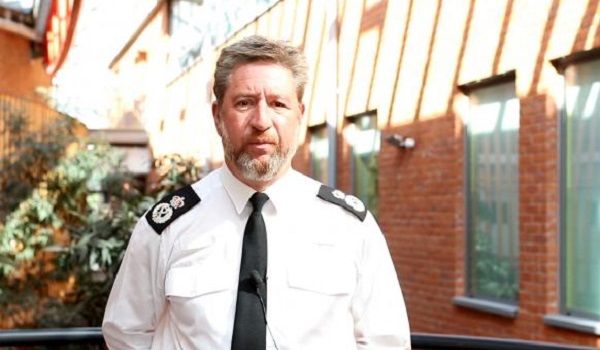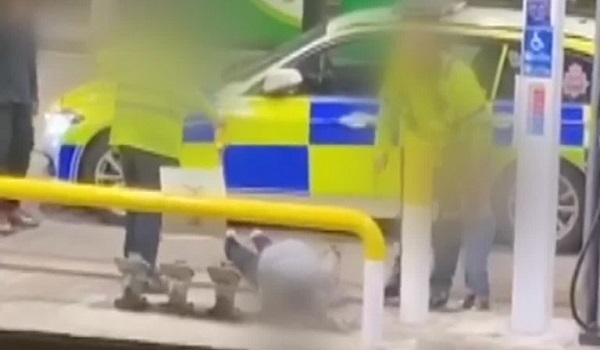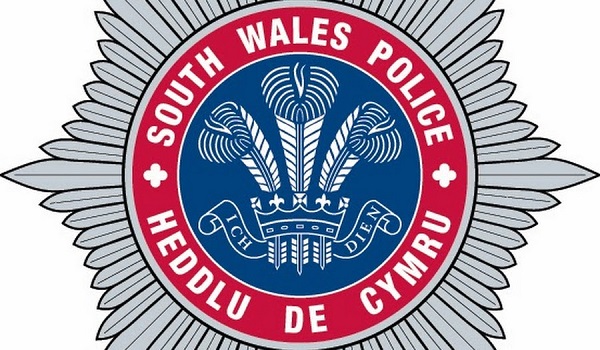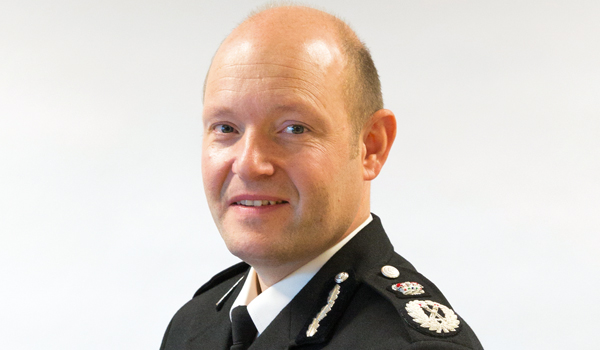Police 'overwhelmed' by tide of online child abuse
Law enforcement agencies are being “overwhelmed” by the number of cases of online child sexual abuse they are having to deal with, the National Police Chiefs’ Council (NPCC) lead for child protection has said.
Norfolk Chief Constable Simon Bailey said big tech firms such as Facebook need to accept greater responsibility and do more to prevent the uploading, sharing and viewing of child abuse images as too many parents still have a “laissez-faire attitude” to what their children do in their bedrooms.
“I don’t think their role in all this has been truly appreciated because without them the abuse wouldn’t be able to take place in so many cases,” he said.
“It’s the big market leaders that actually bear responsibility for making sure the internet is a safe place for our children and for our grandchildren to go. And ultimately at this moment in time it’s not safe.”
He was speaking before the broadcast of the three-part documentary Undercover Police: Hunting Paedophiles, which follows covert police units using undercover officers. The first episode follows “47-year-old Simon”, an undercover officer posing as a paedophile who enjoys abusing his ten-year-old daughter and is looking for other men to join him.
He is bombarded with messages after creating a profile on an open chatroom for children, while an online child sex offender is caught after writing a message offering pictures of a four-year-old girl in a public toilet.
Mr Bailey blamed the “staggering increase” – from 7,000 indecent images of children in 1990 to 17 million on the child abuse image database now – on the development of the internet and the ability of anyone to take and share pictures from smartphones.
He said online grooming has gone up during Covid-19 lockdowns with youngsters spending more time on their computers and paedophiles discussing in chatrooms greater opportunities to carry out abuse.
And he described as “frightening” figures showing that 44 per cent of new indecent images found online are taken by children themselves with 11 to 13-year-old girls most likely to upload and share pictures and videos.
“I could describe to you some of the most horrific videos where you can see a child that’s been groomed, abusing themselves within their own bedroom and you can hear their mother calling up and recorded on the video, ‘darling, dinner’s nearly ready,’” said Mr Bailey.
“Now that is pretty horrific, I think, in anybody’s estimation.”
But Mr Bailey admitted the work was “the tip of the iceberg”, with the 850 offenders arrested per quarter and the safeguarding of more than 1,000 children a month “having little effect, if anything”.
Last year the National Crime Agency warned there are at least 300,000 people in the UK posing a sexual threat to children, while the coronavirus pandemic is thought to have made the problem even worse.
“It is undoubtedly, in my mind, one of the greatest, if not the greatest societal threats that we are having to now deal with as a police service,” said Mr Bailey.
“At the moment, law enforcement agencies across the country are becoming overwhelmed with the sheer volume of cases that we are having to deal with, which is absolutely impacting on our ability to deal with the more sophisticated, the more tech-savvy and potentially the more dangerous offenders, and we are having to deal with an awful lot of lower risk offenders.”
Mr Bailey said police “can’t arrest our way out of the problem” and said he hopes the Government’s Online Harms legislation will hold technology firm bosses to account.
“Ultimately, until such time as the companies that facilitate the uploading, the sharing, the viewing of images, the ability to go online and groom a child, until such time as they put in place the right safeguards, despite our very best efforts and the very best efforts of the undercover community, we are never, ever going to be able to deal with the threat in the way we would wish to,” he said.
“The technology is there to prevent the uploading, the sharing, the viewing of images, I think the technology is there to monitor what is taking place within chatrooms, where grooming is taking place.
“Ultimately, the companies absolutely must bear the responsibility for allowing so much of this abuse to take place and I hold them responsible.”
A Facebook company spokesperson said: “Child exploitation and grooming have no place on our platforms. Using industry-leading technology, over 99 per cent of child exploitation content we remove from Facebook and Instagram is found and taken down before it’s reported to us.
“We also use a combination of technology and behavioural signals to detect and prevent grooming, or potentially inappropriate interactions between a minor and an adult. We have 35,000 people working in our safety and security team to keep our platforms safe.”
Undercover Police: Hunting Paedophiles airs on Channel 4 at 9pm on Monday, February 8.







